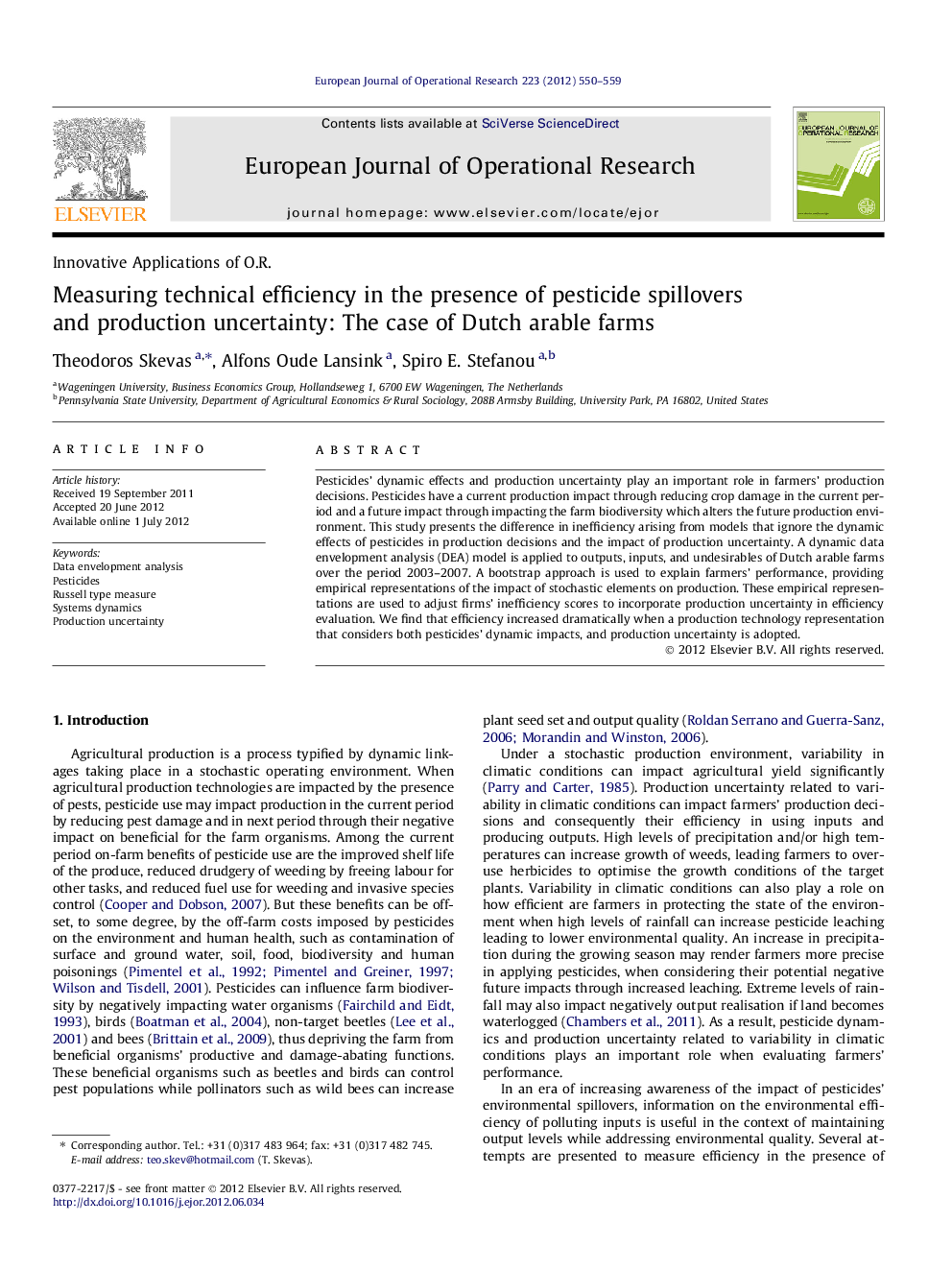| Article ID | Journal | Published Year | Pages | File Type |
|---|---|---|---|---|
| 480262 | European Journal of Operational Research | 2012 | 10 Pages |
Pesticides’ dynamic effects and production uncertainty play an important role in farmers’ production decisions. Pesticides have a current production impact through reducing crop damage in the current period and a future impact through impacting the farm biodiversity which alters the future production environment. This study presents the difference in inefficiency arising from models that ignore the dynamic effects of pesticides in production decisions and the impact of production uncertainty. A dynamic data envelopment analysis (DEA) model is applied to outputs, inputs, and undesirables of Dutch arable farms over the period 2003–2007. A bootstrap approach is used to explain farmers’ performance, providing empirical representations of the impact of stochastic elements on production. These empirical representations are used to adjust firms’ inefficiency scores to incorporate production uncertainty in efficiency evaluation. We find that efficiency increased dramatically when a production technology representation that considers both pesticides’ dynamic impacts, and production uncertainty is adopted.
► Results reveal a considerable scope for decreasing pesticides’ indirect effects. ► Large farms are more output and environmental inefficient. ► Inefficiency decreased dramatically when accounting for production uncertainty.
